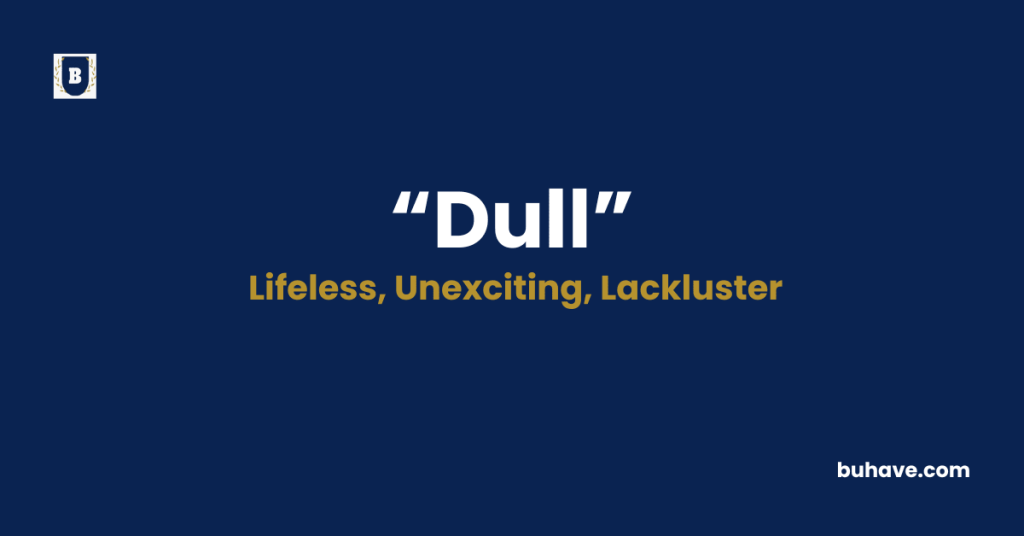The word Dull (adjective) describes something that lacks brightness, interest, or sharpness, often leaving it boring or lifeless. In this guide, you’ll learn the full definition, synonyms, antonyms, etymology, and real-life examples of how to use Dull correctly in sentences.
Dull Explained in Depth
A complete and detailed guide to the word Dull including meaning, definition, examples, etymology, synonyms, and antonyms.
Meanings of Dull
Dull means something that lacks brightness, excitement, or sharpness. It can refer to a lack of vividness in color, a lack of interest in experiences, or a lack of sharpness in tools or senses. For example, a dull knife can’t cut well, and a dull movie fails to entertain.
Definition
Dull refers to something that is not sharp, bright, or lively, and often implies that it is boring or uninteresting. It’s often used to describe objects, experiences, or even mental states that feel lifeless or lacking in stimulation. For example, a dull afternoon might be uneventful and boring.
Etymology
Over time, the meaning expanded to describe anything lacking sharpness or brightness, both literally and figuratively.
Example Sentences
- The movie was so dull that I almost fell asleep.
- This knife is too dull to cut anything properly.
- Her presentation was dull and lacked any enthusiasm.
Dull Synonyms
- Boring
- Monotonous
- Flat
- Blunt
- Colorless
- Uninteresting
- Lifeless
- Stale
- Tedious
- Dim
Dull Antonyms
- Bright
- Sharp
- Exciting
- Interesting
- Vivid
- Lively
- Stimulating
- Colorful
- Engaging
- Energetic
FAQs about Dull
Here are some frequently asked questions (FAQs) about the word “dull”
1. What does “dull” actually mean?
“Dull” means something that lacks brightness, sharpness, or interest, making it boring or lifeless.
2. Is “dull” always negative?
Usually, yes. It implies something is boring, lifeless, or uninteresting.
3. Can “dull” describe mental states?
Yes. “Dull” can describe a lack of mental sharpness or alertness, as in feeling tired or unfocused.
4. How is “dull” different from “boring”?
“Dull” often emphasizes a lack of brightness or sharpness as well as interest, while “boring” focuses on the lack of excitement.
5. Is “dull” commonly used in everyday conversation?
Yes, it’s often used to describe both objects and experiences that lack interest or liveliness.

















